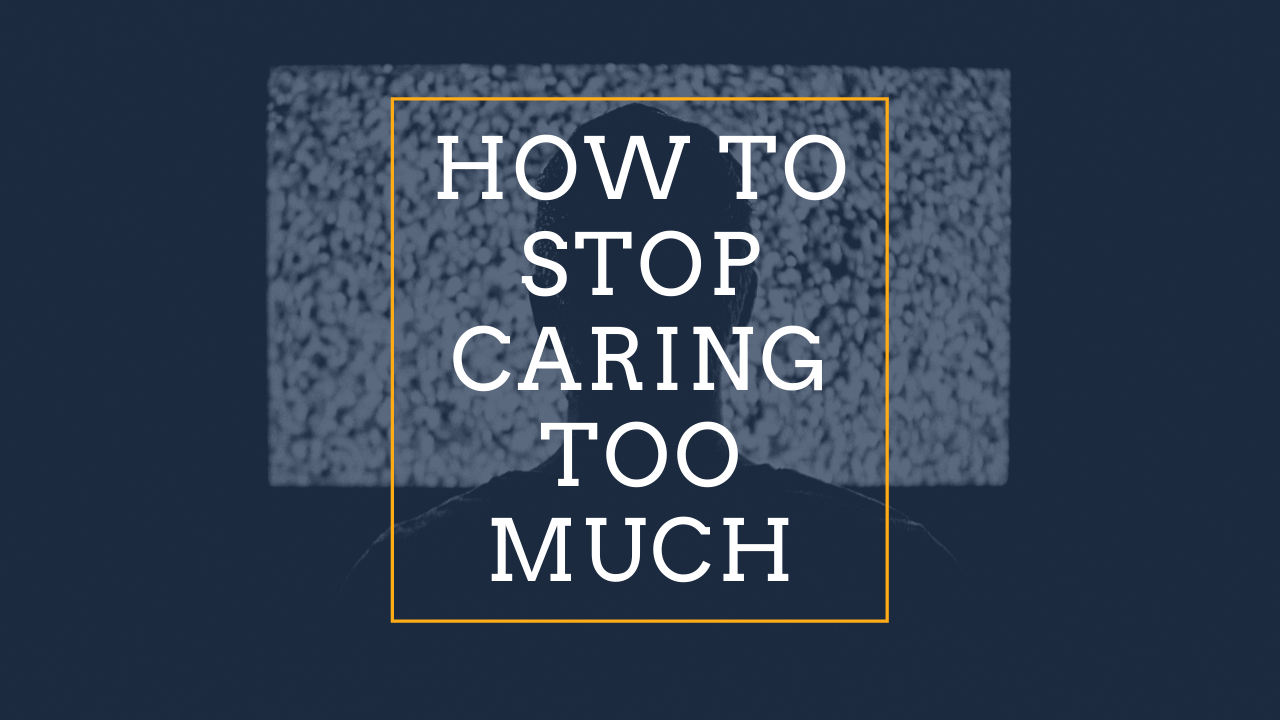|

HOW TO STOP CARING TOO MUCH: SOCIOPATHS PROVIDE CLUES FOR HAPPINESS!
The brain is a funny organ. The most accomplished scientists are still discovering the wonders of this peculiar and powerful mass of tissue and cells. With all its magic and mystery, the brain does not multitask. Contrary to public opinion, the brain sucks at handling too many things at once. This is evident by the existence of both involuntary and voluntary thought processes. Thankfully, we don’t have to think about breathing or our heartbeat in order to
live. If we did, I would have forgotten to do so long ago. Metacognition is thinking about what we are thinking about. If we can be aware of what we are thinking about, we can choose what to actually think about. Or can we? Do we have a choice about what we spend brain time on? Can we make a literal choice on how we consume mental energy?
There are people who enjoy starting metaphorical fires. And, there are people who enjoy putting out metaphorical fires. In other words, there are people who create drama and as well as people who feel the need to help others deal with drama. I have come to realize that I am guilty of the latter. From an early age, I have felt the need to help people fix problems and challenges in life. This is more evident as a parent than in any other part of my life. You
might ask, but John that is a good thing, isn’t it? Since the brain doesn’t multitask, it actually jumps from one thought to another at a time. We may believe we are multitasking but we are not. This is evident when we are in focused thought on catching a fly ball in baseball. The brain cannot ponder the challenges for Latin American economics while calculating the flight angle and terminal location of the baseball relative to our position on the field. We are indeed one thought at a time creatures.
We can make a choice regarding what to think or care about. Believe me, as a recovering fixer, it is not easy. With practice and effort, we can make deliberate choices about what spend time thinking or worrying about. The best way to self-analyze is by splitting a thought into two parts. Should I care about this? Am I responsible for this? Responsible literally means our ability to respond.
Should I care about this particular thought? I have learned we spend far too much mental energy on crap that makes no significant difference in our lives. We cry, fight, and curse things that are completely inconsequential. We obsess over issues that have no impact on us. We literally waste our single focus brain on junk like what someone else thinks about us or how many likes I have on a Facebook post. Even worse, if you are a fixer (like me), you obsess on what
others think about others in your life. Am I driving the right car? Are my clothes nice enough? Am I too fat, short, or old? Even worse, is my daughter too skinny, dressed properly, or with the right friends? We feel sorrow or disdain for sociopaths. But, what if they are on to something valuable mentally? All mental disorders are on a spectrum meaning there are degrees of dysfunction in our brain. A sociopath is a term used to describe someone who has an antisocial personality disorder (ASPD). People with ASPD can’t understand or care about others’ feelings. In other words, they often don’t give two flying rips about what others are thinking or
feeling. If sociopaths care too little, does it logically imply that others care too much? Are people on the opposite end of the spectrum (from sociopaths) equally dysfunctional mentally? Whoa! When we feel responsible for other’s issues, we are on the fast track to unhappiness. If we feel compelled to carry the “mental water” for others, we lose happiness in our single-focused brain. We cannot enjoy this moment if we are vacillating between worrying about our own crap and the crap everyone else in our life is experiencing. It is normal to worry about those we care about. However, we must develop the mental skill to prevent worry from
becoming something more harmful. With practice, we can tell ourselves someone is going through a difficult time; however, they will be stronger for the challenging experience on the other side. For example, your twenty-year-old, adult child announces he is going to quit college and spend a year backpacking in Australia with friends. Someone reading this sentence just felt severe heart palpitations. Most parents would become apoplectic and obsess over worry, feeling highly-compelled to fix this problem when it is their own child. However, when it is a fictitious example of a hypothetical person, we might think it is cool for a young person to seek adventure
during the dawn of adulthood. The secret to happiness is to care less and love more. Caring less does not imply not caring at all. It is instinctually impossible to not care about someone we love. Caring is a metal investment in others at a given point in time. We can indeed invest too much mental time for those we love. Happiness is a singular state of mind that changes depending on the thoughts we allow in our brain. This means it changes from moment to moment as we encounter one
thought or another. I am happy about this delicious watermelon in one moment and unhappy about my flat tire in another moment. The challenge is to string as many happy moments together at a time. It takes practice and determination, but you can do this. You will be far happier when you start examining the why behind your thoughts. Why am I upset about this? Why is this thought a big deal? Why am I spending my time considering this? Why is this issue my “mental water” to carry? Trust me, as a recovering fixer and chronic worrier, I am speaking from experience.
When you divest yourself from caring about insignificant things or other people’s responsibilities, your brain will focus on things that matter. I feel wonderful today. This is a meaningful article that will help others. Here is one last example...
Finish Reading
______________________________

Discover My Podcast

Leading the Tribes Video
Leading the Tribes Training - Book my 1-day class at your location for managers and supervisors.
Leading the Tribes Keynote Speech - Book my 1-hour speech for your event.
Call (903) 295-7400 Today!
-------------------------------
Keeping Top Talent Video

-----------------------------

Need a Keynote Speaker?

I'm always amazed at how fun you can make learning!
Tessa Conrad, Pak-Sher
Your excitement and energy as a speaker is amazing. Hearing you speak on your years of experience and insights on leadership and generational change was very relevant and something that we can all learn from and apply to our organizations.
Cliff McDaniel, Louisiana CPA Oil and Gas Conference
It was the best presentation that I have attended so far, You are the best speaker ever . I am so impressed that I have ordered 2 of your books on Amazon. So thank you for making a difference in people’s personal and professional lives.
Lovely Chandla, Hilton
John Grubbs' keynote message is powerful! John is able to clearly convey his knowledge and foresight on the generational changes that affect ALL of us. I had many A-ha moments with his vivid examples. We continue to talk about what his message taught us to this day. You will have to reach for a tissue to wipe tears of emotion and laughter. John's message is memorable and inspirational!
Maria Gallegos, Texas Chemical Council
Call John Grubbs (903) 295-7400


|






